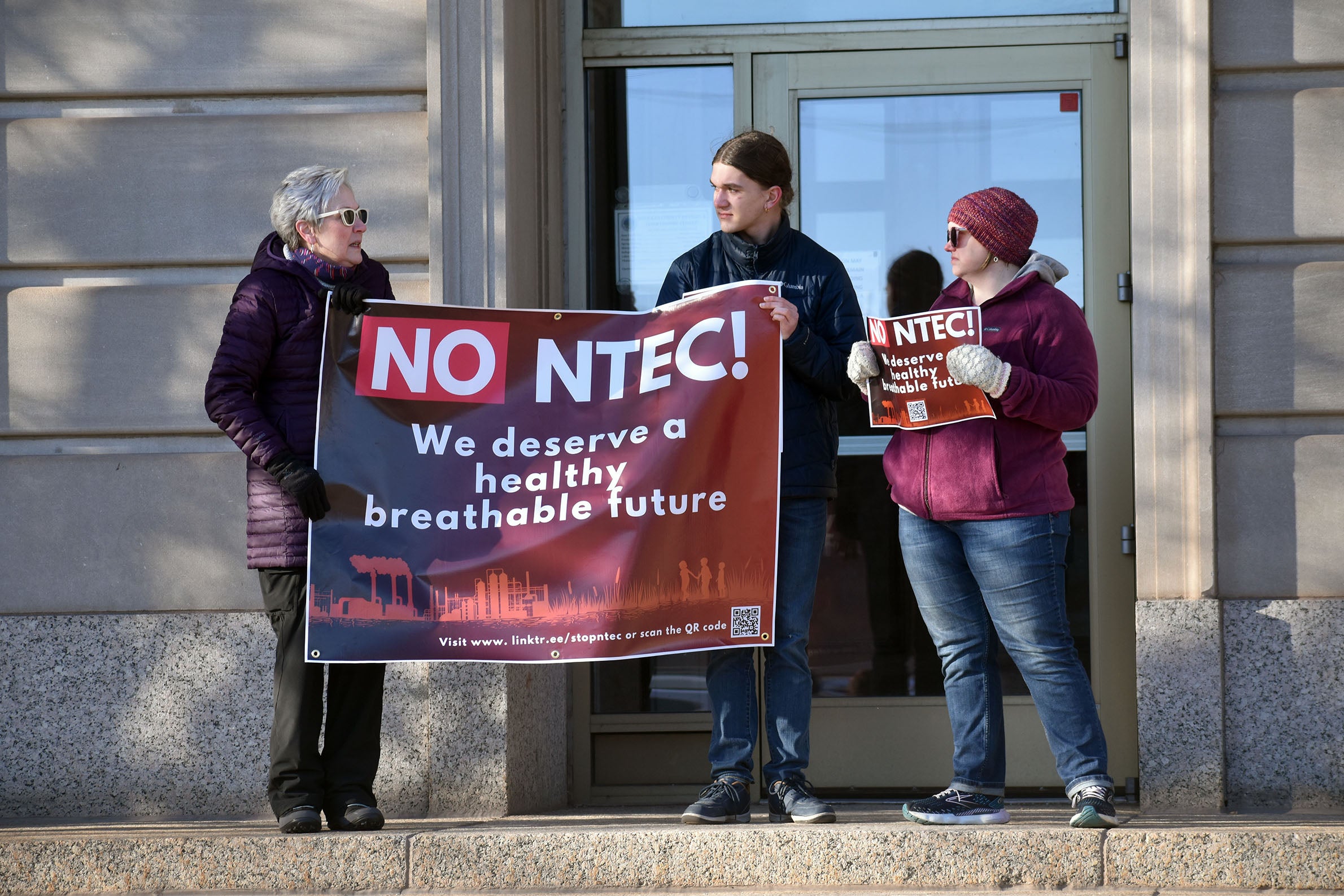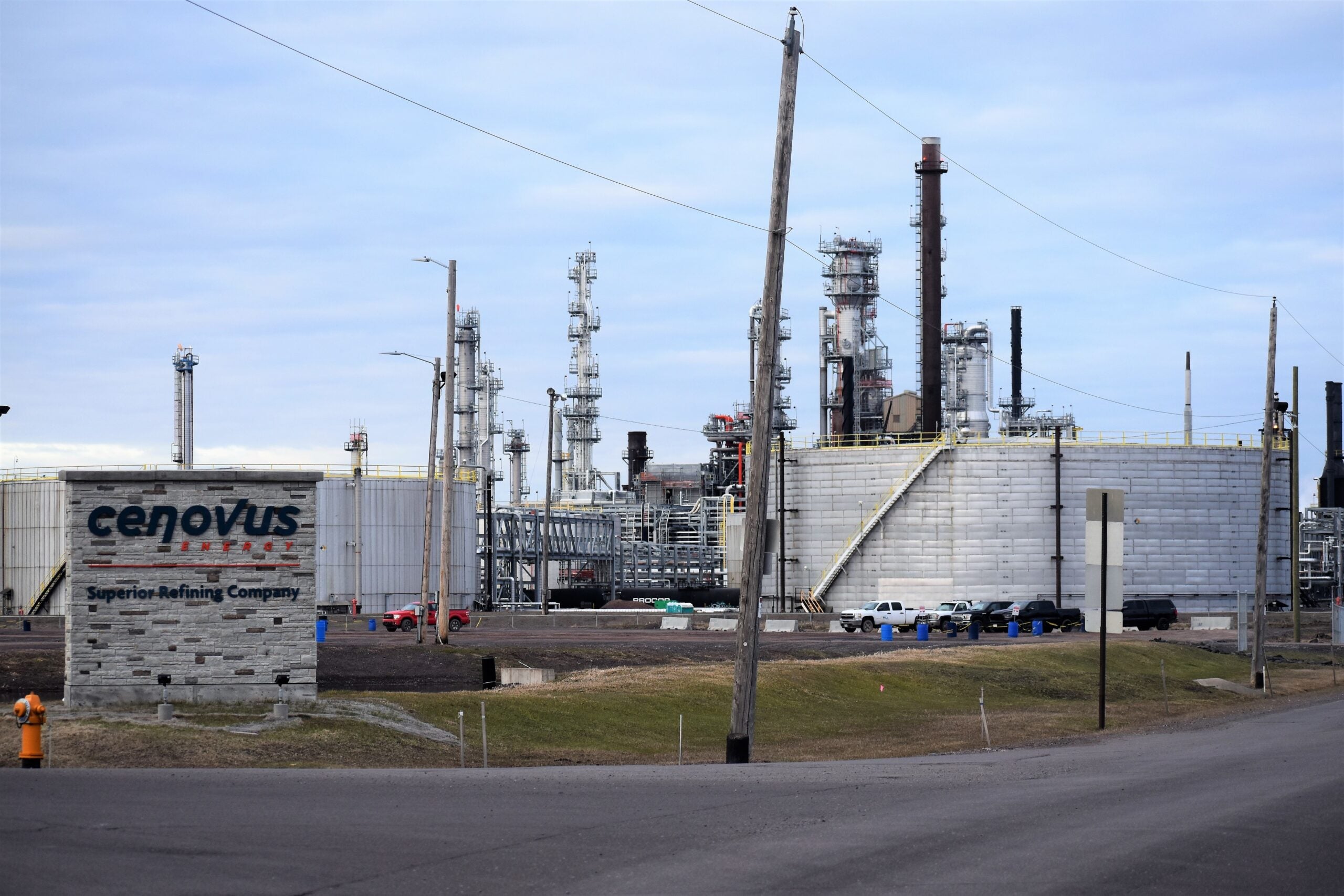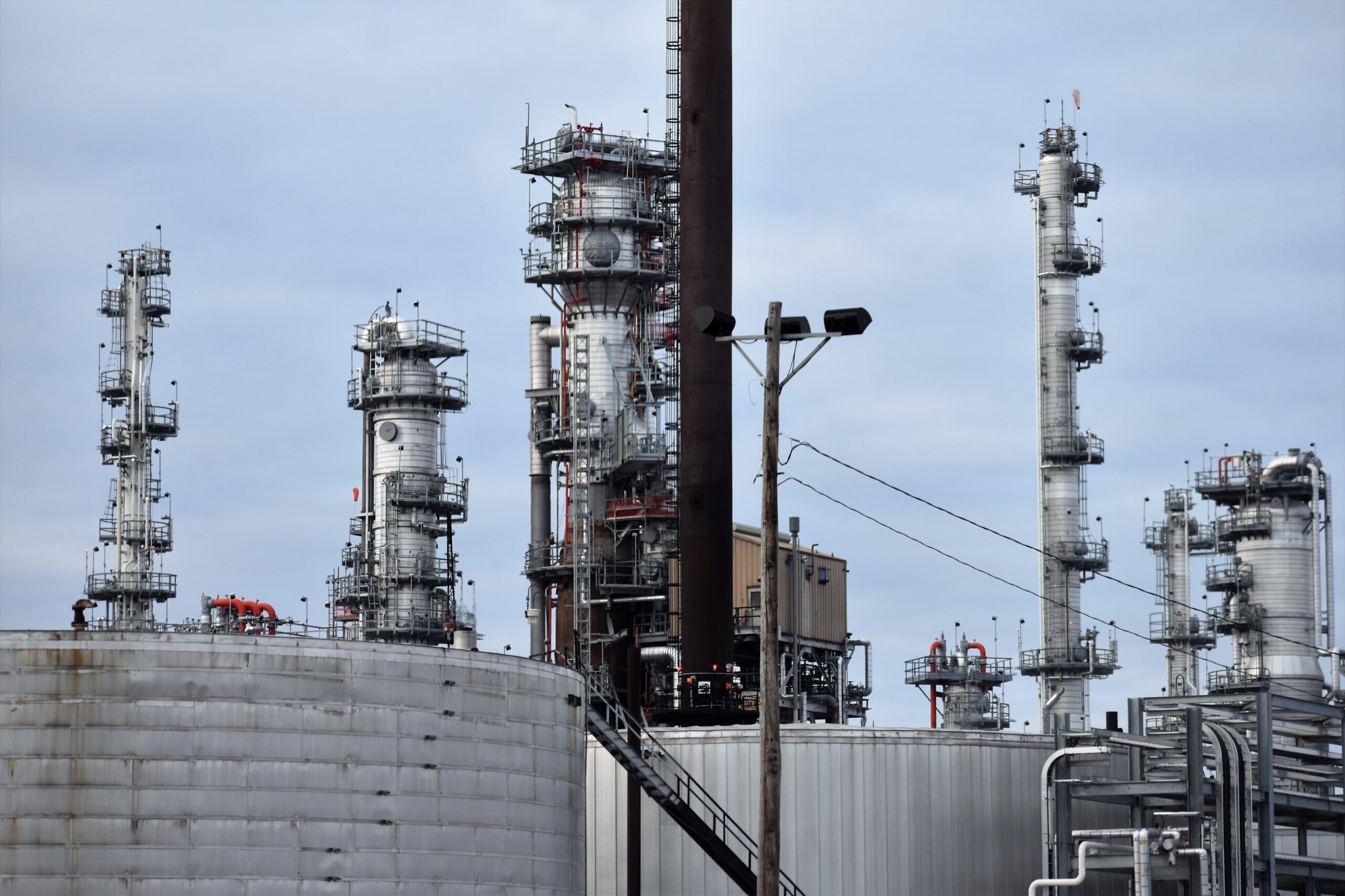Husky Energy held an open house in Superior Tuesday night to provide information and answer residents’ questions after a series of explosions and fires at the company’s refinery in the city caused widespread evacuations in April. Investigations and cleanup at the refinery are still ongoing.
Monitoring at the facility and around the community shows there are no risks to public health as work continues, according to officials with Husky, the company’s third-party contractor GHD and the U.S. Environmental Protection Agency.
The refinery has been going through a de-inventory as product is removed from pipes at the facility, according to David Morrison, on-scene coordinator for the EPA. He said light-end petroleum compounds that go into gasoline are being treated with vapor combustion units to prevent any release of harmful chemicals as part of ongoing work.
Stay informed on the latest news
Sign up for WPR’s email newsletter.
A handful of protesters and some other community members questioned the transparency of company and government officials overseeing air and water quality monitoring, including Aimee Peterson, a Superior native and student at the University of Wisconsin-Superior.
“I hate to say this, but are we getting the truth? Is this something different or are we being told lies?” Peterson questioned.
Others said they’ve been satisfied with the response by Husky and regulators, including Robert Boettcher of Superior. He stopped at the open house to submit a roughly $500 claim for lost work and other expenses related to the evacuation.
“Basically, they cut me a check right then and there,” he said.
Boettcher feels like Husky is trying to do right by the community. As of Tuesday evening, the company had received 2,873 claims largely related to expenses from the evacuation or lost income. Superior Mayor Jim Paine said the company also reached out to the city to reimburse them for costs related to fighting the fire, including equipment damage and lost foam. As the recovery continues, Paine said he would like to know when the refinery will be up and running again.
“We don’t want them to hurry. We don’t want them to do it in a haphazard way,” he said. “We want them to be deliberate, but we want to know as much as possible about what is the timeline — even a best guess. When can we look at operation again?”
Town of Superior resident Scott Bartley said he was also hoping to learn when the refinery would be back up and running.
“It’s a pretty, pretty vital part of our community and our world … to have the ability to refine fuels for everything we do in our economy right here in our backyard like it’s been for 50 years,” said Bartley.
Husky Refinery manager Kollin Schade said it’s difficult to determine when operations will resume because investigators are still on the scene and company officials have limited access.
“Right now, without a timeline even for the investigation, there’s no way to really say in six months or year or whatever it is,” said Schade. “We just don’t know.”
Schade said 250 to 300 people are continuing work at the refinery during the cleanup, adding no Husky employees have been laid off. However, some community members don’t want to see the company rebuild in its current location, including Debra Topping, a member of the Fond du Lac Band of Lake Superior Chippewa. She said the refinery poses too great a risk to nearby Lake Superior.
“That is unacceptable to me to have them rebuild. They should be 100 miles away from this – a minimum of 100 miles,” she said. “If that refinery, if that hydrofluoric acid had exploded, then what?”
Paine and Duluth Mayor Emily Larson have called on Husky to end the use of the toxic chemical that prompted the temporary evacuation. The company has said it will explore alternatives to the chemical.
Wisconsin Public Radio, © Copyright 2024, Board of Regents of the University of Wisconsin System and Wisconsin Educational Communications Board.





